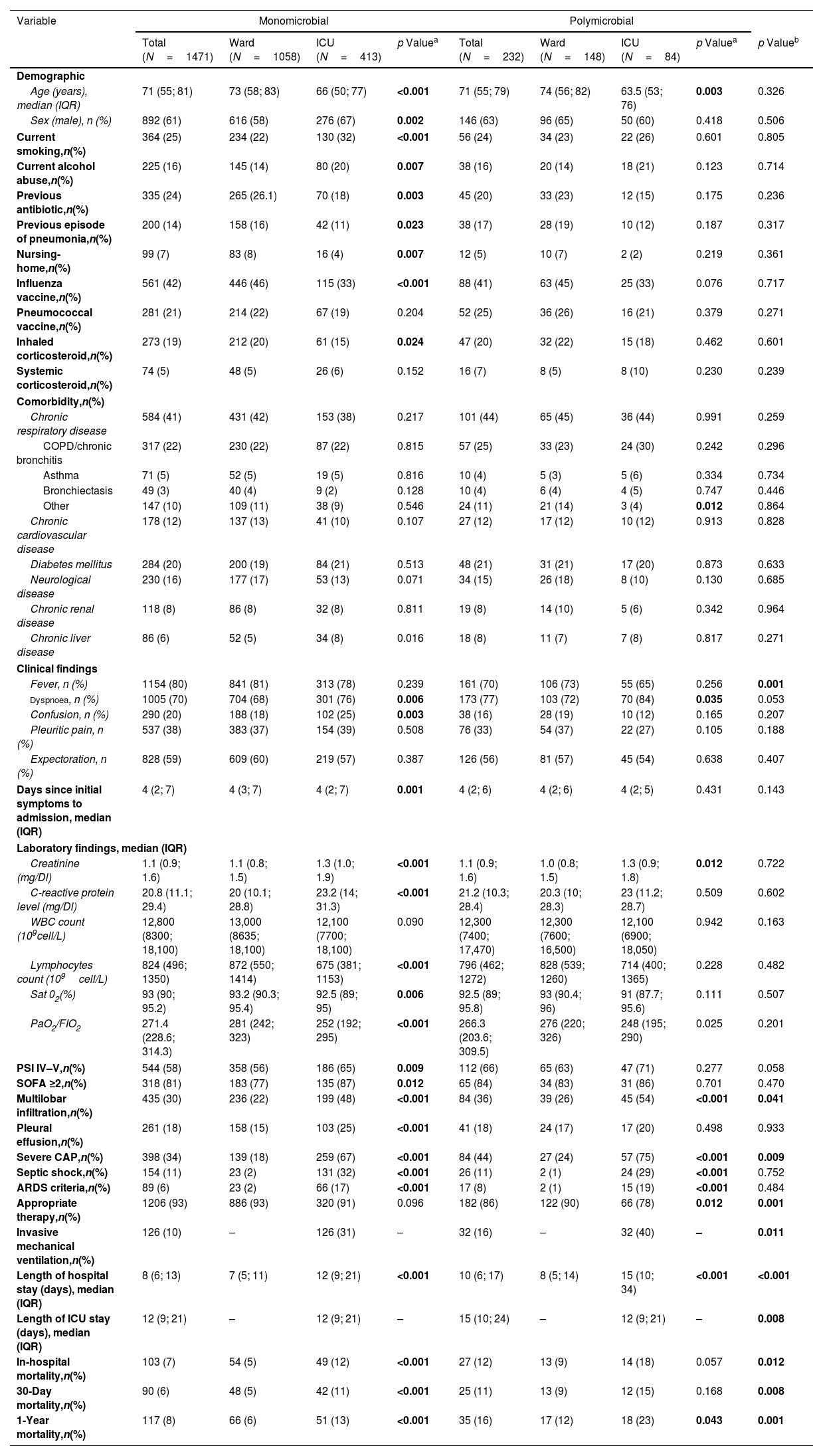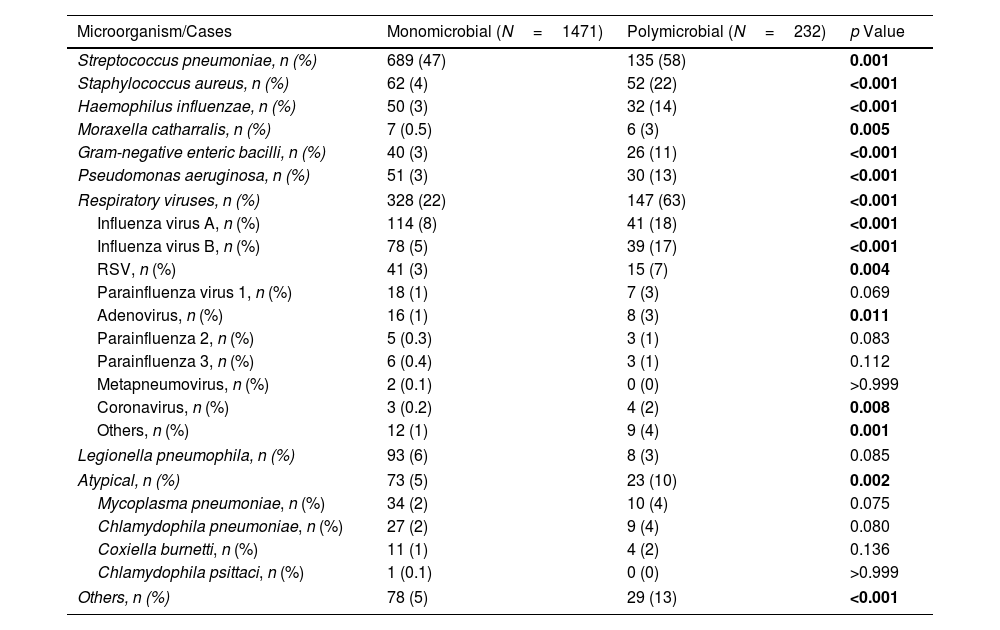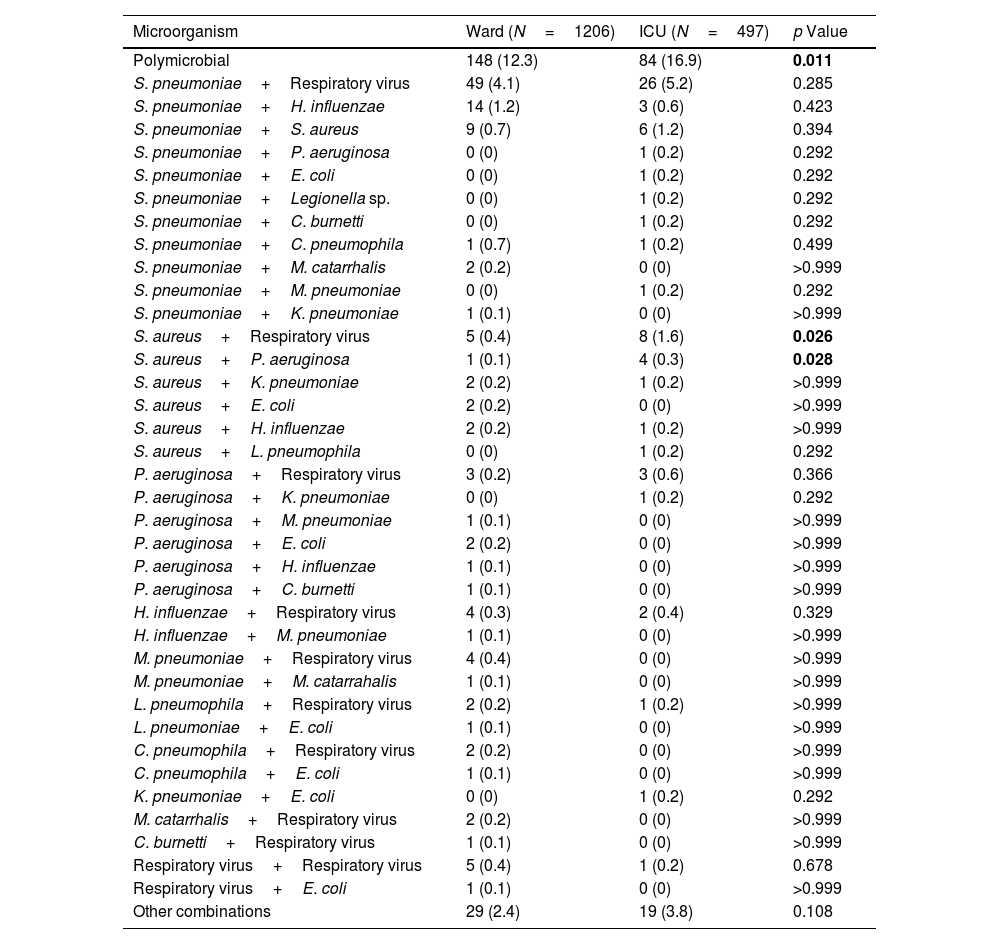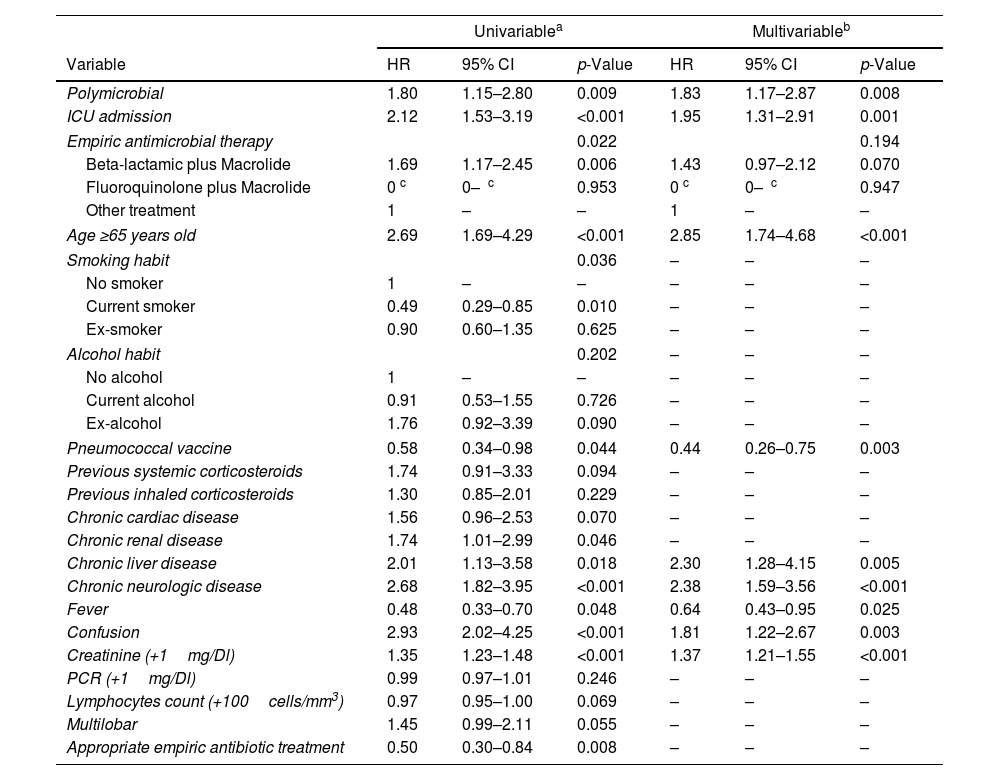Polymicrobial pneumonia is a concern for clinicians due to its association with increased disease severity. Determining the prevalence of polymicrobial pneumonia and identifying patients who have an increased risk of this aetiology is important for the management of CAP patients. Here we describe the clinical characteristics and outcomes of adult hospitalized patients with CAP, and identify the risk factors related to polymicrobial pneumonia and specifically to 30-day mortality.
MethodsReal-life retrospective study from a prospectively collected data including 5114 consecutive adult patients hospitalized with CAP; 1703 patients had an established aetiology.
ResultsPolymicrobial infection was present in 14% of the CAP patients with defined microbial aetiology (64% of ward patients and 28% of ICU patients). The most frequent polymicrobial infections were: Streptococcus pneumoniae+respiratory virus (32%), S. pneumoniae+Haemophilus influenzae (7%) and S. pneumoniae+Staphylococcus aureus (7%). Inappropriate initial antimicrobial treatment was more frequent in the polymicrobial aetiology group than in the monomicrobial aetiology group (14% vs. 7%, p=0.001). In-hospital (12% vs. 7%, p=0.012), 30-day (11% vs. 6%, p=0.008) and 1-year mortality (16% vs. 8%, p=0.001) were higher in the polymicrobial group. Multilobar pneumonia (OR 1.34, 95% CI 1.00–1.80) was an independent risk factor for polymicrobial aetiology in the multivariable analysis, while fever (OR 0.59, 95% CI 0.43–0.80) was independently associated with a lower risk for this condition. Polymicrobial infection was an independent predictor of 30-day mortality in the multivariable analysis (HR 1.83, 95% CI 1.17–2.87; p=0.008).
ConclusionsPolymicrobial infection was related to poor outcomes in adults hospitalized with CAP, especially in elderly patients with chronic comorbidities. Polymicrobial infection was a risk factor for 30-day mortality.

















